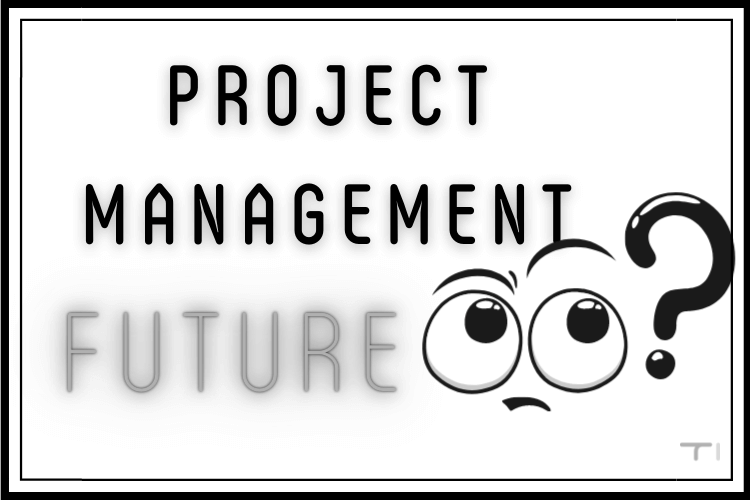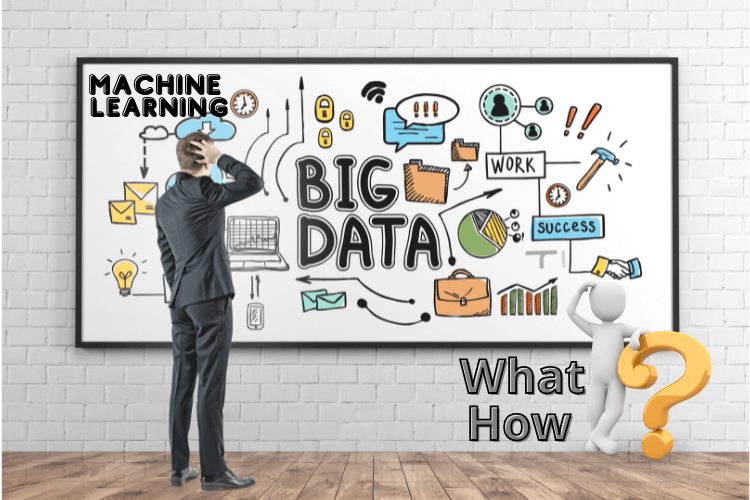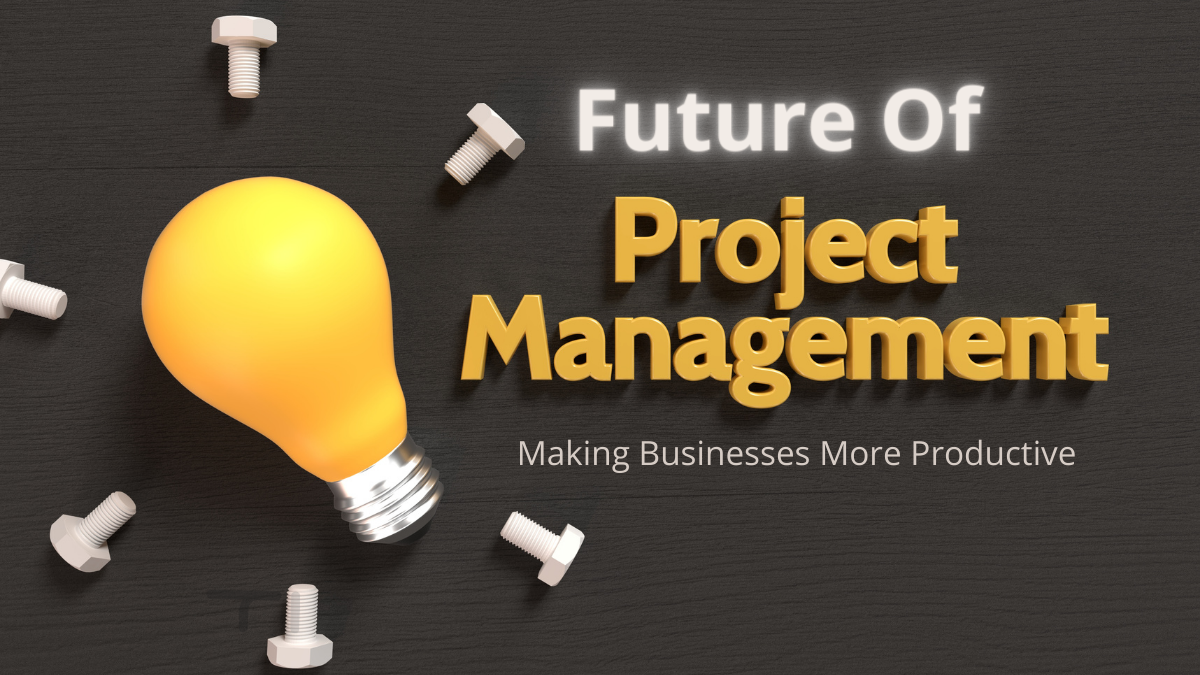Project Management is one of the most important aspects for any business, and as Artificial Intelligence(AI) and Machine Learning(ML) continue to improve, it’s becoming increasingly important that there are systems in place to support these advancements.
AI is making businesses more productive. ML will allow for a better understanding of customer needs with Big Data emerging to collect up-to-date information on how the company can improve its complex products to stay ahead of competitors.
The future of project management has arrived.
But what does this mean for you?
Contents
Does project management have a future?

The future of project management is here and it’s making our businesses more productive.
Artificial Intelligence, Machine Learning, Automation, Virtual Reality/Augmented Reality (VR/AR) & Big Data are all technologies to help streamline the process for us.
AI has become a valuable tool in helping companies run efficiently by automating tedious jobs such as following up with customers after they’ve made complaints or checking inventory levels while also improving customer service through chatbots that can answer questions 24/hours a day.
ML will allow for a better understanding of needs from your current clients, which means you’ll be able to create new products tailored specifically towards their desires without having to guess what those might be beforehand based on market research alone.
VR/AR will support remote culture in a way that’s never been done before.
And big data helps collect information on how project managers and leaders can make data-driven decisions while also handling multiple projects in a fraction of the time it would take if you were just relying on intuition alone.
The future of Project Management and its practices are clear that it will help organizational focus on the most important aspects of companies and help in overall productivity.
It’s not just a matter of adopting new technology for the sake of adoption but understanding how to use these technologies to make your company more productive as well as making your employees happier with their work-life balance.
These technologies all have huge potential and are at various stages of development, which means we can expect them to be widely available soon!
Future trends in project management

What are some future trends in Project Management? Well, there are “trends”, and then there are “facts”.
A mix of those are like AI, Big data, Machine Learning, Automation & Integrations are some that help creates an environment where business owners have a better idea about long term success because they’re given predictive insights into customer needs and preferences while allowing them to be creative in responding to those needs and preferences.
Artificial Intelligence:

What is Artificial Intelligence?
Artificial Intelligence is the theory and development of computer systems able to perform tasks that typically require human intelligence, such as visual perception, speech recognition, decision-making, and translation between languages.
There are two types of Artificial Intelligence:
- Narrow AI –> Is a machine or software designed for one specific task (e.g., playing chess)
- General AI –> Machines with general abilities across multiple tasks like reasoning & learning; not just limited to narrow skillset. General AIs would be more akin to “artificially intelligent” humans who can do many things well rather than being only good at one thing.
We need to know that Artificial Intelligence will only grow in importance as it’s making our jobs more productive. In fact, AI is already being used by many companies for customer service & marketing automation, and personalization. It’ll allow you to produce a better product with less work than ever before which means happier employees.
Happier employees are more productive and allow for a better work-life balance.
The need to adapt is here, so we must continue learning as an individual in order to keep up with the pace of change coming our way because continuous self-education will enable us to adjust quickly when changes happen.
With AI becoming more prominent, it will need to be regulated so that we don’t have a dystopian outcome of job loss because of robots taking overall work opportunities. There should also be a concern about how humans adapt to this new technology while still maintaining their hobbies and Ways to Spend Your Free Time.
How AI will affect Project Management?
AI will affect Project Management in the following ways:
- Improved Collaboration with colleagues and team members. AI can be programmed to know about company workflows, job descriptions, individual’s skill sets and previous achievements enabling collaboration across departments;
- Forecasting future events more accurately than ever before due to access to a wider range of data sources (e.g., weather forecasts) that are rapidly changing in complexity which is too much for humans to keep up with on their own but still manageable for Artificial Intelligence systems capable of learning patterns from this information quickly;
- More Efficient Execution due to automation of repetitive tasks such as scheduling meetings or creating reports by analysing past projects based on historical performance metrics versus using intuition alone.
- With Risk Management, AI can help to identify and assessing risk at the earliest stage of a project lifecycle which will allow for quick response to potential issues.
- Project Estimations: With all the data an organization can help estimate cost time, the scope of a complex project which is important as it can help identify potential risks and opportunities.
- Fraud Detection: AI is also being used to detect fraudulent behaviour or anomalies based on the likelihood that certain transactions are legitimate versus risky. In projects with financial risk, fraud detection systems will be essential for identifying such activities before they have a chance to impact the business in any way.
Machine Learning and Big Data:

What is Big Data and Machine Learning?
Big Data broad term that covers a wide array of data sets, all of which are too large for traditional relational databases to manage.
Big Data can be stored in-house on powerful servers or hosted by third-party vendors who specialize in these types of systems and have access to vast amounts of storage space. AI algorithms use the data set as input and output an analysis based on the probabilities associated with given scenarios (e.g., customer behavior).
This type of system isn’t limited to just one industry; it has many applications such as scheduling events, determining risk levels during complex projects, identifying fraud when financial transactions take place among others.
Machine learning is being used more widely as it is a process of presenting a system with data in order to teach it how to analyze future data. The result is that the algorithm can do what humans cannot: never get bored, work around the clock and at an ultra-fast speed.
With these technologies on hand, entrepreneurs will be able to make smarter decisions faster than ever before as they plan for their company’s bright future ahead. This means more profit potential!
Big Data refers not just to the size of information but also its variety: text messages between friends, emails from customers, and social media posts are all part of Big Data.
Some enterprises have begun embracing this trend by investing heavily in machine learning systems.
How Big Data and Machine Learning will affect Project Management?
ML and Big Data will affect Project Management in the Following Ways:
- Planning: With Big data in the picture, Planning while considering past mistakes learned by machine becomes easier.
- Forecasting: Forecasting can be done better because ML is more accurate and faster in predicting the future than humans are. It also provides a level of accuracy that planning cannot provide, so it would make sense to put forecasting at the top of your planning priorities.
- Knowledge Management: In an organization with a large amount of data, knowledge management is critical to success. ML can help you do this by surfacing information that’s relevant for your planning and forecasting goals.
- Predictive Analytics: Predictive analytics will change the way organizations plan projects because it takes past planning efforts into account when predicting future outcomes. This means fewer false starts in planning and more accurate predictions about project performance based on historical data.
- Improve Decision-making Processes: Machine learning systems are capable of making better decisions than humans, which makes them ideal as an advisor or assistant to decision-makers who have time constraints. The good thing about these systems is they don’t get tired or emotional like human beings often do.
- Increase Organizational Effectiveness: Increasing Effectiveness is an ongoing process; Organizations with machine learning technologies will continue to become more and better as they learn from past decisions from planning, execution and output.
- Increase Organizational Agility: Machine learning systems can be programmed to adjust with the needs of an organization, which provides a competitive advantage in rapidly changing environments. A machine learning system may even become aware of new market opportunities that aren’t being pursued by other organizations. This type of agility will likely increase organizational success rates because it would not have had time constraints imposed on planning processes as humans do.
- Improve Innovation Processes: When planning is done well ahead of deadlines and based on historical data, innovation becomes easier for project teams since their future planning efforts are more accurate predictions instead of assumptions or guesses about what might happen. This gives them the freedom to experiment without fear thus helping to increase innovation.
- Improved Quality: Output comes quality is also likely to improve when project management machine learning systems are in use. The more historical data they have, the better quality of predictions can be made for future outcomes. This means that smaller risks might get overlooked and larger ones may not happen as often if actionable steps are taken once an issue has been detected through predictive analytics tools.
A book can be written on this; we should stop here.
Integrations:

What is IT Integration?
Integration is a process of bringing together two or more things that are not originally part of the same whole.
Integration can be both technical and functional, in which case it is often called “system integration”.
Ten types of IT Integration:
- Process Integration
- Application Integrations (ABAP)
- Cloud Computing Integration
- Data Storage Systems Integration
- Networking Solutions for Businesses Integments
- Enterprise Resource Planning System-to-Systems Interfaces (ERP to ERP interfacing)
- Web Services Interface (Web Service Protocol/Interface)
- Middleware Programming & Development Tools
- Mobile App Programmer Developer Software Integrated Apps, and
- Mobility Security Toolkits.
Rise of Integrations
When we think of creating a product; it’s difficult, risky, and time-consuming. Don’t forget the huge amount of funds required just for the MVP (minimum viable product).
What my prediction of project management is there will be a huge rise in integrations to other saas, iaas products, plus M&A activities, which we will not discuss in this post.
It’s already happening; just google your “tool + integrations”.
The integrations don’t only help customers use their favorite tool but also helps companies in marketing to a whole another set of customers.
It makes the workflow much easier, which compliments the future of project management at the productivity level.
How integrations will affect Project Management?
Integrations will affect project management in the following ways:
- More Features: With Integrations, if a project management tool that lacks time management facilities will allow their tool to have collaborate on other time management tools to add it to their own functionality.
- Increased Productivity: With Integrations in place it will be much easier to manage tasks with a single click, instead of going to different tools, making business more productive.
- Cross-Platform Accessibility: Increased productivity is only possible when the user can access all the tools they need on one screen which mean that project managers have an increased number of choices as well as cross-platform accessibility for projects.
- More Marketing Options: Project Managers also have options like marketing through integrations so users don’t miss out on any opportunity. It gives them a new market without spending too much effort and money in advertising themselves against competitors because other companies are doing their work for them!
- Catch up with Trends: In order to keep up with the latest trends, companies need to be able to adapt on a dime. This is one of the most difficult things and if you can’t do it then your competitors will surpass you. Here integrations are a win-win for everyone.
- Open Opportunities of Devs: Developers can also work with the project management software and create a custom solution that fits perfectly within their own environment, how they want to work.
- Improved on Project Focus: Project managers will be able to focus on tasks rather than administration because of this new design. They’ll have time for other important things like marketing or interacting with clients which is crucial in their success.
- Middle-man: The middlemen who would have to be hired for this type of service will no longer be needed since all the work is done through the integrations so there’s not much overhead cost or time spent on finding other people and hiring them.
- Operations Cost Comes Down: The operations cost comes down because there are no contracts and you’re not paying for a middleman to handle the project management plus you don’t have to invest in making whole another system by yourself.
Integrations Solutions is not today’s thought. In fact, It was predicted that by 2021, 71.1% or more developers would automate businesses through APIs (Application Programming Interfaces), and we are already close to 2022.
But Now! with No-Code solutions available on the market, which can make it much easier for organizations to integrate their own workflows into a single framework.
The Rally of Integration has begun.
Skills that Project Managers will need in Future

Managers will need strong leadership skills to motivate their teams and maintain high-quality work.
Isn’t that obvious?
The culture we see, lacks “that” most. Managers are not given enough power but are expected to have a higher responsibility for success.

You cannot have one without the other. But as a Manager, you have to start somewhere to attain that, to show that you want it.
The only sure judgment of the future in management is that it will be hard to find an organization that does not have some kind of project going on. Whether these projects are small or large, they’ll require somebody’s attention and care – something a Project Manager is there for!
Managers will also need people management skills(it’s PEOPLE, we assumed that you misread) for how they handle difficult situations, as well as negotiating and conflict resolution abilities when problems arise with clients.
Communication is key in any managerial role, so that’s another skill managers should focus on sharpening. Project Managers may be able to prepare for the future by taking courses or self-teaching now that there are many online resources available. (Google Google)
There are a lot of different factors influencing what kind of project management tools you use, but it really comes down to your personal preference because everybody has different priorities which features are important to them based on their business needs.
Many of the tasks like planning will be data-driven, which will help managers in their projects. This possesses another level of challenge and skill set. One will still have to decide what part of the organization needs action first, what’s the priority of each department.
Project Manager in the future cannot only rely on their respective fields such as marketing management, or development management, or content management, but also health care, sustainability; basically, they will need knowledge of various fields plus constant communication within different teams, due to the advances in technology the demand for project managers professional that can sync with multiple teams will be high.
Project management is a key function for any business. The way we perform project management today may look different in the future as new technologies emerge and change how people work, such as virtual reality (VR), augmented reality (AR), wearable devices, machine learning algorithms, Internet of Things (IoT) sensors that collect data from physical objects across a network to central servers without human intervention.
With VR/AR; at their core, they are nothing more than screens with lenses that allow you to immerse yourself into an alternate world by wearing them like glasses or goggles. This could see whole teams working on projects together remotely while being able to collaborate in real-time using AR applications which would create amazing possibilities.
It’s safe to assume the communication will also not much of a headache as every project management software is making a communication and collaborations system seamless and easier for a project manager to use.
To keep up with the future, we will need project managers that can sync with multiple teams and are able to work in different environments due to there being no limitations – as the physical location is not a factor anymore. [Remote Culture on Rising]
Project management software may be more commonplace on mobile devices like smartphones, watches, or tablets because of this new technology becoming accessible. A good example would be Todoist by Doist, which has an app available for Android and iOS phones so you can stay productive from anywhere. This type of situation makes it harder for projects within organizations when working across different platforms but having these types of tools means they won’t have any issues at all.
The skillsets required for project managers to have in the future will be different than what is currently needed. Project managers need skills like the ability to work with remote teams and people, as well as multitasking effectively. In response to this emergence, we are also seeing that people now want their skills assessed using big data skills assessment tools like EQi as well as other machine learning-based approaches such as COMPASS. This way, they know what skills they’re good at so they can work on developing these further while also working out how to improve skills that may not necessarily be top-notch skills.
Conclusion:
Project management software may change in order to accommodate trends within technology, meaning you’ll see programs become available for mobile devices, smartwatches, tabs, etc.
Businesses know that they have an obligation not only for their customers but also towards themselves in terms of growth and success.
They’ll always want to make sure that they’re reaching their full potential, which includes taking any opportunity available as well as increasing all products within the company, especially when it comes to project management needs.
Technology is constantly evolving, and project management needs to evolve with it if we want an organization’s projects to remain successful in this rapidly changing world – but understanding these changes means being proactive about your business’s future today!
Here are Top 7 Project Management Tools Selected by our team; these companies do move towards the development side than others, plus have great support teams.
Share your comments on here or tweet us @TechnicaliHQ



